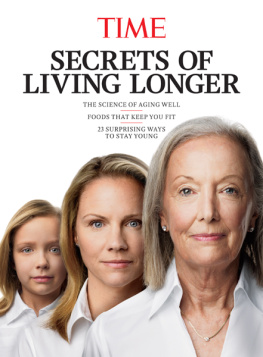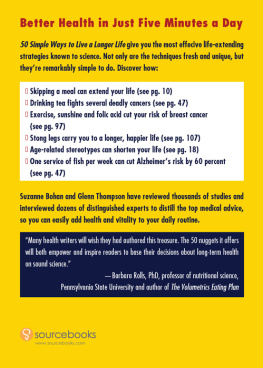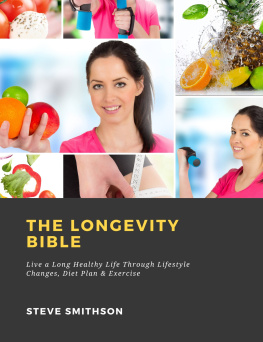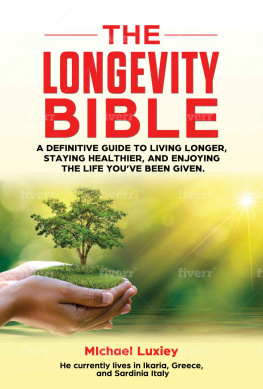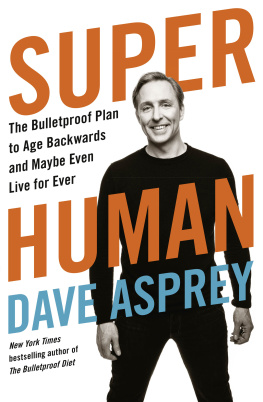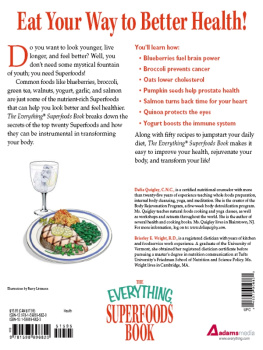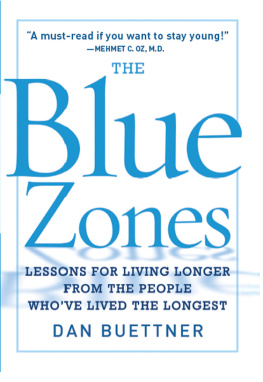Contents
THE SCIENCE OF YOUTH
A DRUG FROM DIRT AND SOME SIAMESE MICE HAVE RESEARCHERS INCHING TOWARD THE SEEMINGLY IMPOSSIBLE: A CURE FOR AGING
BY ALICE PARK

IF THERE WERE GUINNESS WORLD RECORDS DEDICATED to high-achieving rodents, Mouse UT2598 would deserve a mention. The average life span for a mouse is 2.3 yearsso at age 3 and still going strong, Mouse UT2598 has a shot at beating the record for longest-lived, which stands at about 4. Translating that to a human life span, hes hovering around the centennial mark, but on the outside, he looks no different from his much younger brethren. His fur is glossy black, hes lean, and while hes a bit on the small side, hes scrappy and surprisingly active as he explores, sniffs and pokes around his cage at the University of Texas Health Science Center at San Antonio.
What gives Mouse UT2598 his edge is a compound called rapamycin, which seems to slow aging and the damage it can do, at least to certain cells. His liver and heart function as if they were far younger, and his tendons have more spring and flexibility than they should at his age. Theres also less evidence of tumors in his organs than is considered normal, so he could be spared the effects of cancer for quite a while longer. Place him alongside other mice his age, and the contrast is unmistakable.
Mouse UT2598 is just one example of the kind of research into aging thats producing new findingsand raising new questionsevery day. In labs around the world, researchers are testing all sorts of agents, some of which already exist as drugs to treat human conditions (rapamycin is given to transplant patients to prevent organ rejection after surgery) and some of which are purely experimental. Scientists are also toying with ways to manipulate genes and pluck out aging cells, all in a race to find a way to extend longevity to its outer limits.
These efforts mark a new push to examine the basic mechanisms of aging and find ways to counteractor curethem. And they are anything but fringe. Longevity research is being conducted by respected scientists with sound reasons for staking their careers on the hubristic notion that its possible to slow down aging and maybe even reverse it.
When I got into the field, the notion that you could actually do something about the aging process was viewed as a crackpot idea, says Richard Miller, director of the Glenn Center for the Biology of Aging at the University of Michigan. The argument that one can slow aging, and diseases of aging along with it, used to be fantasy, but now we see it like a scientific strategy.
Nobody is talking about living forever. But as these experts see it, aging is the single most powerful factor in the diseases that are most likely to cut our lives short: cancer, heart problems, immune disorders and degenerative brain conditions like Alzheimers. Everybody knows that the main risk factors for heart disease are high cholesterol, obesity and high blood pressure, says Felipe Sierra, director of the division of aging biology at the National Institute on Aging (NIA). But even stronger than those factors is just being 70 years old.
And thats why staving off agingor at least slowing ithas become such a central focus of research. Were going at aging itself, says David Sinclair, a geneticist at Harvard Medical School. We might take someone who is showing signs of aging and be able to do something about it, to treat that as a disease. Thats something I didnt expect to be seeing in my lifetime.
A Modern Anti-Aging Elixir
MOUSE UT2598S RAPAMYCIN DIET CAN BE TRACED BACK to some dirt samples collected in 1964 on an expedition to Easter Island. Those soil samples became the basis for developing a new antibiotic, which was named rapamycin. Researchers noticed that mice that were given the drug tended to live longerby about 20%, compared with those that werent taking it.
Rapamycin is neat because it works in a wide variety of species, from yeast, worms and flies to mice, says David Harrison, who is studying the compound at the Jackson Laboratory, where scientists mine the genome for solutions to human diseases. He and Miller, along with Randy Strongin whose lab Mouse UT2598 residesare also testing other agents in a program sponsored by the NIA. Rapamycin is also neat because it works even when you start quite late in life.
Because of a delay in formulating rapamycin so it remained stable in mouse chow, the first animals to try it were already getting graythey were 20 months old, or the equivalent of 60 years in peoplebut they still showed slower aging once they took the compound. If the research eventually leads to a human treatment, that could bode well for older people; they could potentially enjoy the same benefits that this lucky mouse is experiencing, even if they start in their 60s or 70s.
It turns out that rapamycin interrupts the function of a gene called mTOR, found in both mouse and man, which acts as a traffic signal for directing how cells take in and use energy. If theres plenty to eat, the gene is busy greenlighting cells to absorb nutrients and grow, grow, grow. When food gets scarce, the gene goes quiet, halting the cell-growing machinery until the next feeding time. While mTOR may explain, in part, the phenomenon of calorie restriction and its ability to prolong lifein the 1930s, studies in mice showed that cutting back on their daily diet could add nearly a year to their livestheres also evidence that it taps into other energy-related pathways to longer life as well.
The more active statethe one in which cells are processing nutrients and growingturns out to age cells considerably: as our cells are working hard to process our food, they also spew out toxic free radicals. The goal, then, is to keep mTOR as subdued as possible, preferably without requiring animals to starve themselves miserable. And thats what rapamycin appears to do.
So far its the most promising compound under study, and Harrison and his colleagues are optimistic, though cautious, about its future. After all, resveratrol, a compound found in grapes and red wine, showed early promise in mice that gorged on high-fat diets, extending their lives, but it wasnt as impressive in helping animals on normal diets live longer. (Researchers arent ready to give up on it yet, however, and its still being studied at GlaxoSmithKline.)
While rapamycin dials up one anti-aging circuit, its clear that it is not yet a fountain of youth. Im 72, but Im not popping rapamycin pills yet, says Harrison. Consider the downsides. In mice, it has resulted in a body size that is about 30% smaller than average, and mTOR-regulated mice were also more likely to develop cataracts and were more prone to diabetes. The males tend to experience gradual loss of testicular functionnot exactly a selling point for a future longevity treatment.
Human patients who took the drug after kidney transplants to lower their chances of rejecting the organ, for instance, also had slightly higher chances of developing diabetes, and the risk of cataracts requires more study before a broad application of the drug would be possible. Still, given the fact that rapamycin is already approved and safely taken by patients, anti-aging researchers are hopeful that theyll be able to arrive at the right doses to tip the balance in favor of longevity while minimizing potential risks.
Find the Switches to Flip
FOR OTHER RESEARCHERS, THE KEY TO LONGEVITY MAY BE IN our genes. Telomeres are the timekeepers of a cells life: each time a cell divides, it copies its chromosomes DNA, and like a knot tied at the end of a thread, telomeres signal the end of the copying process. With each cell division, these little squiggles, which are the final segments of DNA at the ends of chromosomes, shorteneventually disappearing altogether. And because certain things, like exposure to ultraviolet light, can cause telomeres to shorten at different rates, theyre a target of a lot of new anti-aging research as well.

